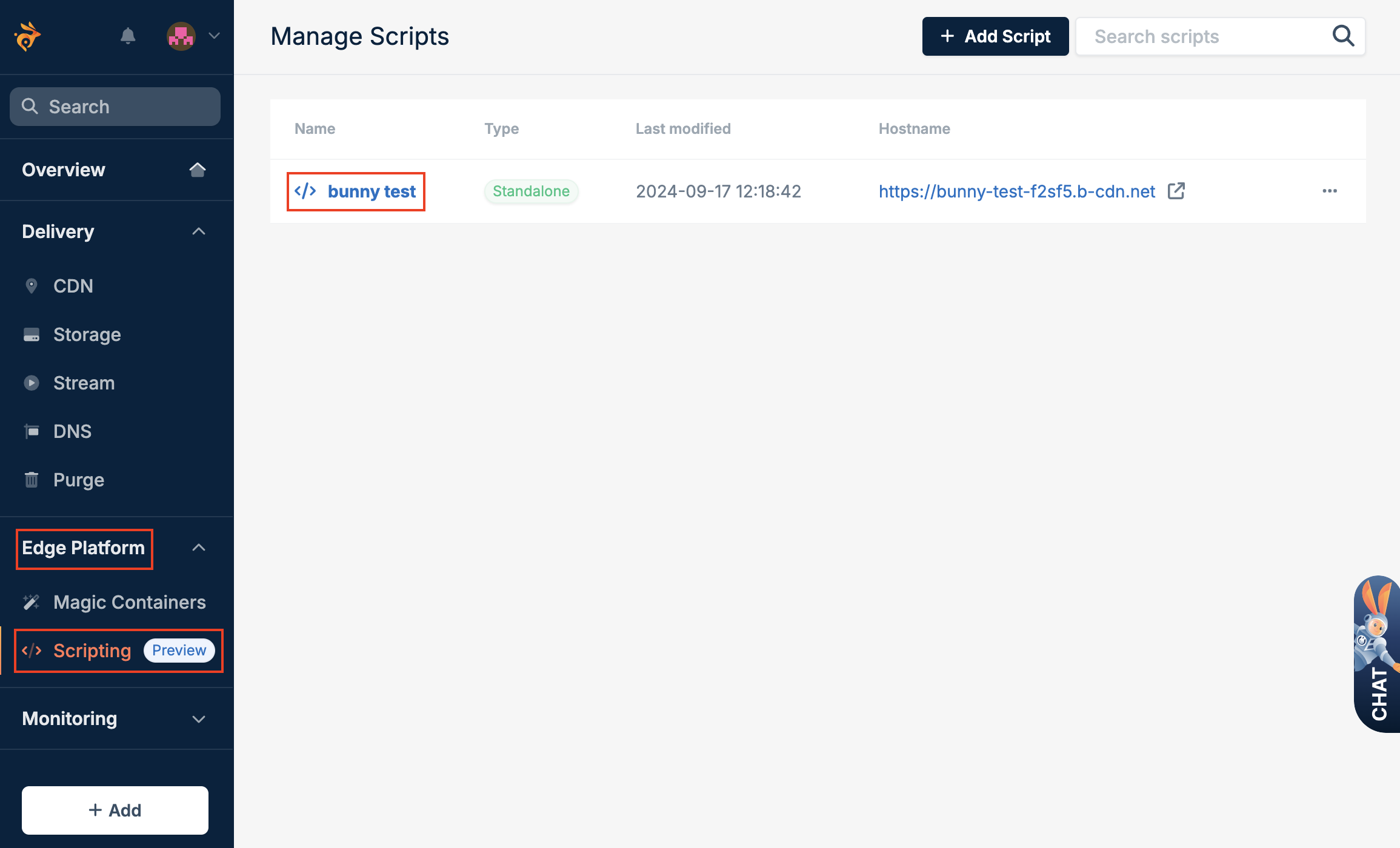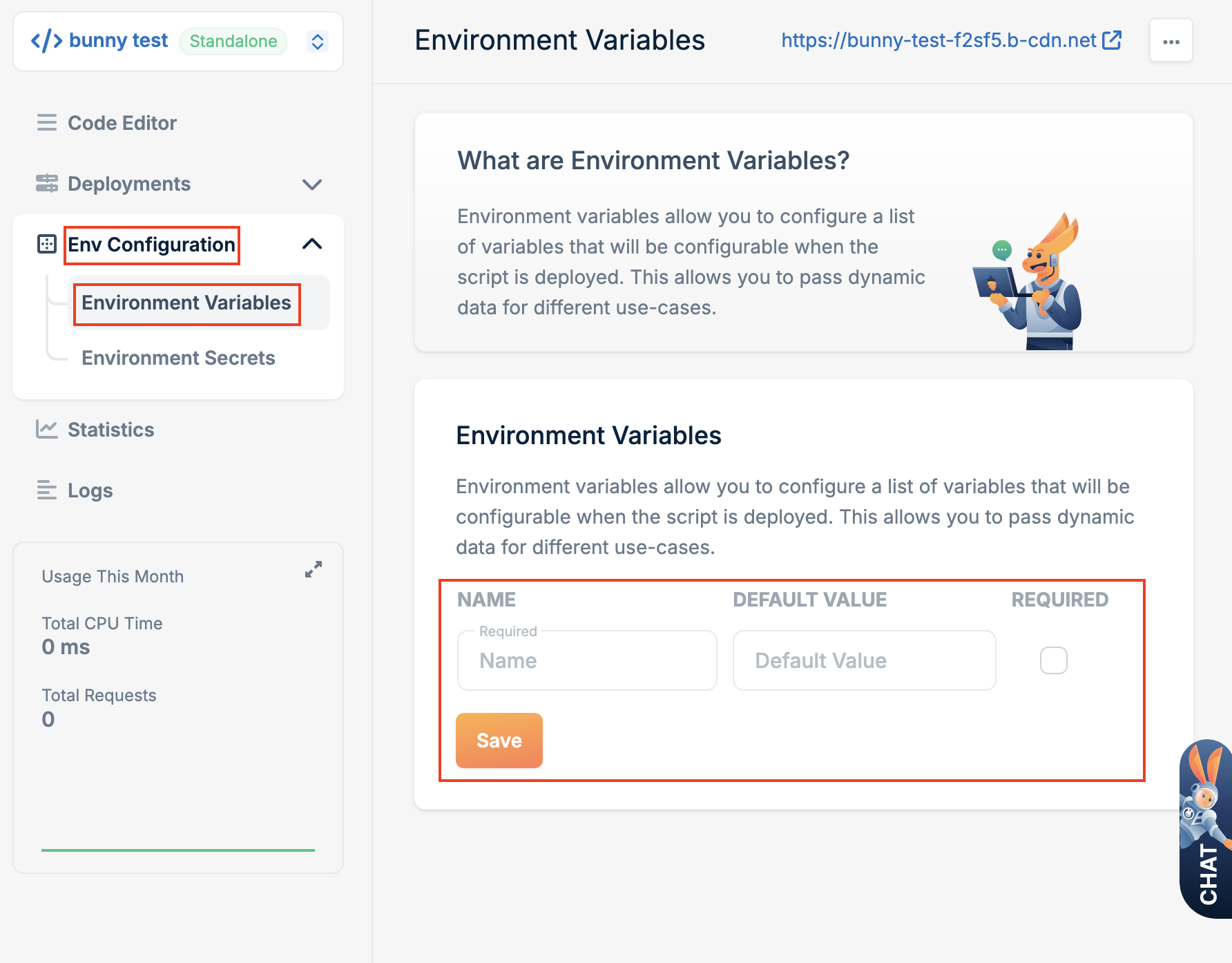For sensitive data such as API keys, passwords, or tokens, use environment
secrets instead. Secrets are encrypted and cannot be
viewed once set.
Adding environment variables
To add environment variables to your script, follow these steps:- Log in to the bunny.net dashboard.
- Select Edge Platform, click on Scripting, and select the script.

- Select Env Configuration and Environment Variables, and fill in the details of the variable you want to create.

- Click Save.